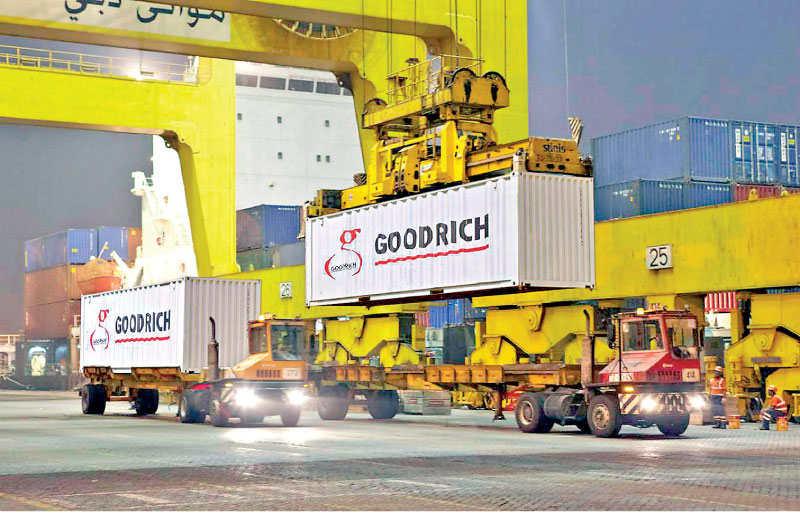Tuesday Feb 17, 2026
Tuesday Feb 17, 2026
Monday, 20 June 2022 00:01 - - {{hitsCtrl.values.hits}}

The crisis faced by NVOCC Lines operating to and from the Port of Colombo, was featured in the Daily FT 11 February 2022, under the heading “Fresh Shipping Setback for imports, exports from feeder operators”, due to the International Feeder Shipping Line Operators imposing new conditions for the carriage of NVOCC Line containers to and from the Port of Colombo.
NVOCC Lines, are regional container/box Operators providing an important service in the ocean freight service category, offering a similar containerised service as main shipping lines to both importers and exporters to and from the Port of Colombo to many Indian Sub-Continent, Middle East-Gulf and Far East destinations.
As per 2021 statistics, approximately 23% of Sri Lanka’s containerised import and export cargo volumes are handled through NVOCC container Lines. It is estimated that over 50% of import cargo from Indian Ports to Colombo are carried on NVOCC containers. A majority of Sri Lanka’s tea exports to the Middle East countries move in NVOCC Lines.
Specialised NVOCC Operators known as ISO Tank Operators, bring in liquid chemicals into Colombo in ultra-safe and purpose-built ISO Tank Containers. NVOCC Lines and their agents bring in a sizable amount of dollar revenue to the Port of Colombo, which includes local and transhipment container handling.
NVOCCs also offer local importers and exporters competitive freight rates to the regional destinations served by them, giving them an alternative to the main shipping lines.
The new conditions initially imposed by the Feeder Operators include NVOCC Lines/Agents obtaining Direct Billing Facilities with the three terminals of the Port of Colombo. The initial deadline given by the Feeder Operators, has now been extended till 1 August 2022, due to the intervention of the Ministry of Ports and Shipping and SLPA Chairman to form a “Joint Committee,” comprising of all stakeholders to find a workable solution to offer NVOCC Lines/Agents the required Direct Billing Facilities at the Colombo Port Terminals.
It has been pointed out by NVOCC Principals that their fleets of containers are adequately insured to cover cargo, equipment and third party liabilities. Also, NVOCC principals state that their business model has been legally recognised and accepted by licensing authorities and service providers in all countries they operate and due to this recognition, their agents in regional ports such as India, Pakistan, Dubai-UAE have been given Direct Billing Facilities by the respective Port Terminal Operators.
However, we understand that the proposal submitted jointly by the three Colombo Port Terminals after almost three months of deliberation, is not conducive for the NVOCC Line principals and their Colombo agents.
This situation finds NVOCC Lines and their Agents sandwiched between the Feeder Operators and Colombo Port Terminals, and places many of the NVOCC Lines actively participating in the ocean shipping operations at the Port of Colombo in a vulnerable position.
If the Shipping Authorities and Port Terminals do not treat this as a high priority matter and arrive at a viable solution prior to the deadline given by the Feeder Operators, there will be a considerable shortage of NVOCC Line Containers coming into Sri Lanka, which will adversely affect the import and export trade.